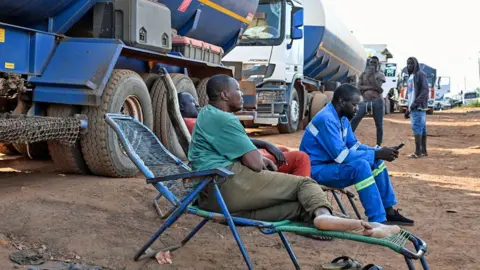
Burkina Faso Forges Ahead Amidst Turmoil, Faith, and a Bold Vision
Burkina Faso, a nation at the core of the Sahel region, is truly at a crossroads. It’s navigating a complex mix of political shifts, relentless insurgency, and its own deep-seated resilience fueled by faith and innovative thinking. Recent months have brought about swift changes: a new leader taking the helm, horrifying acts of terror hitting vulnerable communities, and ambitious national plans aiming to steer the country toward stability and economic revival. Captain Ibrahim Traoré’s rise to power marks a fresh chapter, as he confronts both volatile external threats and strong internal calls for peace. What’s more, Burkinabe officials aren’t just focusing on governance reform; they’re emphasizing spiritual and communal solidarity, with local leaders’ faith shaping their public and private resolve.
This isn’t just about politics. We’ve seen a powerful spiritual dimension emerge, like Pastor Maturin’s poignant call for prayers not only for victims but for their enemies too, reflecting a profound societal belief that faith can mend deep wounds during crisis. That’s a crucial perspective given the stark brutality on the ground. Terrorist groups, seemingly backed by foreign interests, continue their destructive path, culminating in horrific coordinated attacks this past October when 15 Christians were killed in church assaults. This grim reality has earned Burkina Faso the label of one of West Africa’s most dangerous nations. But the government and local communities aren’t standing by. In a bold move, Burkina Faso has publicly called out foreign-backed terrorists, hoping to gather regional and global support against these external forces destabilizing the Sahel. This strategy doesn’t just shed light on the international aspect of the security crisis, it also solidifies alliances within the Alliance of Sahel States, a partnership that includes Burkina Faso, Mali, and Niger. These collective efforts represent a regional commitment to counterterrorism and shared development, both vital for lasting peace. Indeed, West Africa is uniting against Sahel turmoil. For those wondering about the spiritual resilience, Open Doors provides details on the pastor’s plea.
Amidst these ongoing security challenges, Burkina Faso is also embarking on a truly innovative and bold socio-economic experiment. Just recently, on November 7th, 2025, President Traoré made history by welcoming 700 new citizens, including African Americans, Afro-Caribbeans, and Afro-Europeans. This initiative offers citizenship to descendants of Africans in the diaspora, inviting them to live, work, and contribute to Burkina Faso’s economy and culture. It’s not just about boosting the economy through global diaspora ties; it’s a powerful move to heal historical fractures and foster a pan-African identity built on shared heritage. What does this all mean for the future? The combination of new political leadership, a deep-seated faith, the exposure of external threats, and these ambitious citizenship reforms paints a picture of a nation in profound transition. Burkina Faso isn’t just surviving; it’s striving to be a beacon of hope and resilience in the Sahel. The collaborative efforts of civil society, faith communities, and the state show a holistic approach to restoring security, nurturing unity, and revitalizing the economy. The coming months will surely be crucial in gauging the sustainability of these efforts. The government will need to keep strengthening regional alliances and its security apparatus while staying committed to inclusive governance. Pastor Maturin’s call for peace through prayer might just echo as a broader appeal for compassionate diplomacy and social cohesion. Alongside pragmatic policies, these elements could genuinely turn the tide against extremism and economic stagnation. Burkina Faso’s journey is a compelling one, showing a nation redefining itself despite adversity, illustrating how leadership, faith, security, and identity are all intertwined in its quest for a stable and prosperous tomorrow. It’s a story the world needs to watch closely, as this West African country aims to transform conflict into a roadmap for renewal. The new citizenship policy, for example, is a significant step towards this vision, as reported by The Sierra Leone Telegraph. Also, insights into the broader regional context, like the jihadist threat in Mali, underscore the urgency of these unified efforts.








